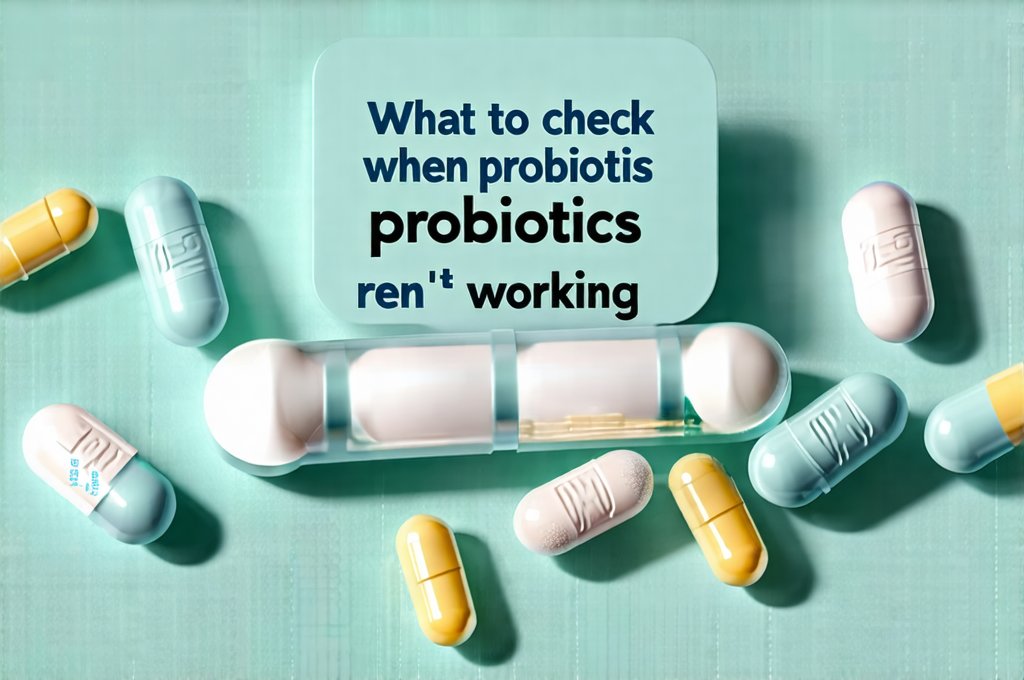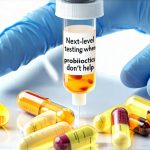Probiotics have exploded in popularity as awareness around gut health grows. Many people turn to these beneficial bacteria hoping for improvements in digestion, immunity, even mental wellbeing. But what happens when you diligently take your probiotics, yet don’t experience the expected benefits? It’s a frustrating situation that leaves many wondering if they wasted their money or if something is fundamentally wrong. The truth is, probiotic efficacy isn’t one-size-fits-all; numerous factors can influence how well (or if) these supplements work for an individual. This article will delve into the potential reasons why your probiotics might not be delivering results and offer a systematic approach to troubleshooting.
The gut microbiome is incredibly complex – a vast ecosystem of trillions of microorganisms unique to each person. Simply adding more bacteria doesn’t guarantee improvement; it’s about balance and creating an environment where beneficial strains can thrive. Think of it less like planting seeds in barren land, and more like cultivating a garden already teeming with life. Factors ranging from diet and stress levels to medication use and underlying health conditions all play a role in shaping this ecosystem, and these factors must be considered when evaluating probiotic effectiveness. Furthermore, not all probiotics are created equal; strain specificity, dosage, and delivery method significantly impact their ability to colonize the gut and exert their intended effects. If you’re concerned about persistent symptoms, it might be time to ask your doctor for a more thorough evaluation.
Understanding Potential Roadblocks
The first step in troubleshooting ineffective probiotics is understanding what might be hindering their function. It’s rarely a simple case of “probiotics don’t work”; it’s usually about identifying why your probiotics aren’t working for you. A major issue stems from the sheer diversity of probiotic products available. Many contain strains that haven’t been thoroughly researched or clinically proven to offer specific benefits. Others might have insufficient colony-forming units (CFUs) – the number of live and active microorganisms per serving – to make a significant impact. Beyond product quality, your individual physiology plays a crucial role.
Consider the existing state of your gut microbiome. If it’s severely imbalanced due to long-term antibiotic use or poor diet, simply adding probiotics might not be enough to restore harmony. You may need to address underlying issues first, such as reducing inflammatory foods and supporting gut healing. Another significant roadblock is low stomach acid. Stomach acid is essential for breaking down food but also plays a role in releasing probiotics from their capsules and initiating their journey through the digestive tract. Reduced stomach acid, often due to age or medication (like proton pump inhibitors), can compromise probiotic survival. It’s important to understand how acid reflux mimics other conditions, potentially masking underlying issues that impact gut health. Finally, lifestyle factors like chronic stress, poor sleep, and lack of prebiotic fiber can all negatively impact gut health and probiotic effectiveness.
Diet and Lifestyle Considerations
Your diet is arguably the most significant factor influencing your gut microbiome. A diet rich in processed foods, sugar, and unhealthy fats can promote the growth of harmful bacteria and disrupt the delicate balance within your gut. Conversely, a whole-food based diet abundant in fiber, fruits, vegetables, and fermented foods provides nourishment for beneficial bacteria and supports a healthy ecosystem. Specifically focusing on prebiotic foods is essential – these are non-digestible fibers that act as food for probiotics, helping them to thrive. Examples include:
- Onions
- Garlic
- Leeks
- Asparagus
- Bananas (slightly green)
- Oats
- Apples
Beyond diet, lifestyle factors contribute significantly. Chronic stress triggers the release of cortisol, which can negatively impact gut motility and microbial diversity. Aim for effective stress management techniques like meditation, yoga, or spending time in nature. Adequate sleep is also crucial; lack of sleep disrupts circadian rhythms and impacts gut health. Regular physical activity promotes gut motility and overall wellbeing. It’s important to remember that probiotics are not a quick fix. They work best as part of a holistic approach to gut health that encompasses dietary changes, stress reduction, and lifestyle modifications. If you’re struggling with persistent reflux, it’s worth exploring what to do when medication isn’t providing relief.
Medication Interference
Certain medications can significantly interfere with probiotic effectiveness. Antibiotics, while sometimes necessary, are notorious for wiping out both harmful and beneficial bacteria in the gut. Even after finishing a course of antibiotics, it can take weeks or months for the microbiome to recover naturally. Taking probiotics during and after antibiotic treatment is often recommended, but it’s important to choose strains specifically known to resist antibiotic effects and support microbiome restoration. Beyond antibiotics, other medications can also pose challenges:
- Proton pump inhibitors (PPIs) – these reduce stomach acid production, as mentioned earlier, hindering probiotic survival.
- Nonsteroidal anti-inflammatory drugs (NSAIDs) – long-term use of NSAIDs has been linked to gut dysbiosis and increased intestinal permeability.
- Immunosuppressants – medications that suppress the immune system can also impact the microbiome and reduce probiotic effectiveness.
If you’re taking any medications, it’s crucial to discuss potential interactions with your healthcare provider before starting probiotics. They may recommend adjusting dosages or exploring alternative strategies for gut health support. Understanding GERD and dizziness can also help you differentiate between medication side effects and probiotic issues.
Strain Specificity & Product Quality
Not all probiotics are created equal. The benefits associated with probiotics are often strain-specific, meaning that different strains of the same species can have vastly different effects. For example, Lactobacillus rhamnosus GG is well-researched for its ability to support immune function and alleviate diarrhea, but other strains of Lactobacillus rhamnosus may not offer the same benefits. When choosing a probiotic, look for products that clearly identify the specific strains included and have supporting research demonstrating their efficacy for your intended purpose.
Furthermore, product quality is paramount. Look for reputable brands that employ third-party testing to ensure potency (CFU count) and purity. Many probiotics are sensitive to heat, light, and moisture; therefore, proper storage is essential. Check the expiration date and follow the manufacturer’s instructions for optimal preservation. Consider the delivery method – some probiotics are formulated with enteric coatings or capsules designed to protect them from stomach acid and ensure they reach the intestines intact. Finally, be wary of overly ambitious claims; a probiotic that promises to cure everything is likely not credible. You can also explore how to tell if probiotics are actually working for you.
It’s important to approach probiotic supplementation strategically, recognizing that it’s rarely a standalone solution. A comprehensive assessment of your diet, lifestyle, medications, and potential underlying health issues is essential for identifying roadblocks and maximizing the effectiveness of these beneficial microorganisms. If you continue to experience digestive discomfort or other symptoms despite trying different probiotics and making appropriate lifestyle adjustments, consulting with a healthcare professional – ideally one specializing in gut health – is recommended. They can help identify any underlying medical conditions that may be contributing to your symptoms and develop a personalized treatment plan tailored to your specific needs. Sometimes, all you need is something fried but with mindful portion control! And if reflux appears at odd times, consider symptoms without food intake.


















